In this excerpt, Chavarría discusses his mentor Celedonio Molinar’s lasting legacy to the town and to the Congo tradition, including a charge to embrace the tradition with pride and joy.
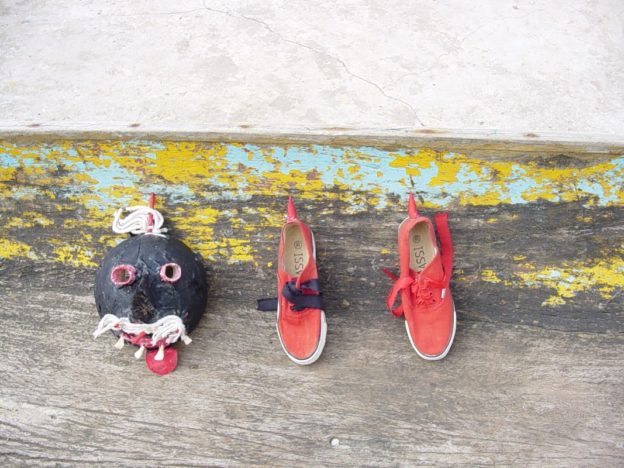


In this excerpt, Chavarría discusses his mentor Celedonio Molinar’s lasting legacy to the town and to the Congo tradition, including a charge to embrace the tradition with pride and joy.
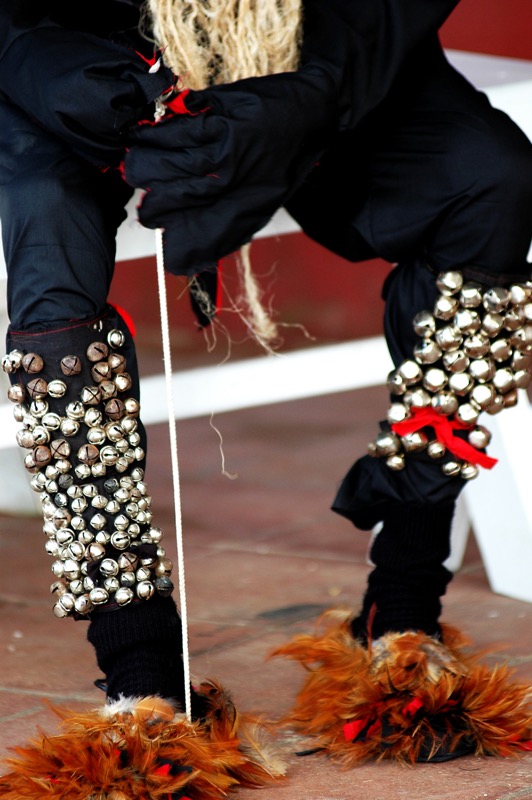
In this excerpt, Chavarría discusses the way in which hierarchies of Congo Devils greet one another, how they are baptized within the tradition, and the importance of crossing one’s feet and “dancing” in the devil way.
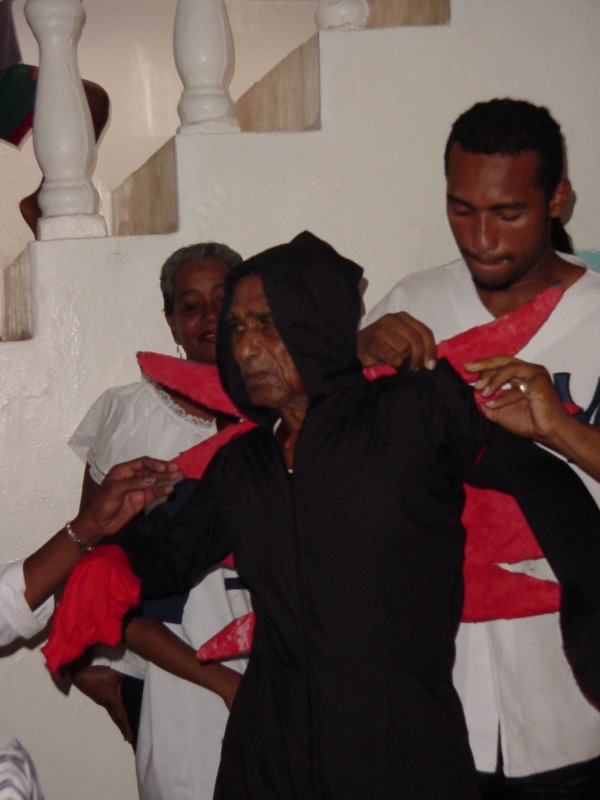
In this excerpt, Chavarría discusses his memory of the last time the renowned Celedonio Molinar performed as devil and how his mentor retired in 2003 after being honored at that year’s Festival de los Diablos.
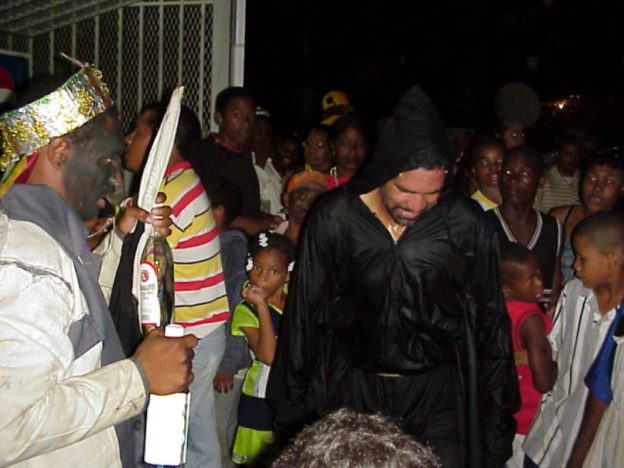
In this excerpt, Chavarría discusses his particular style of “Devil” embodiment within the Congo tradition and the way others perceive of his performance. He also talks about the respect devils from outside of the community give to the devil of the town they are visiting. Each visiting devil must submit to the rules of the game as practiced by the local community.
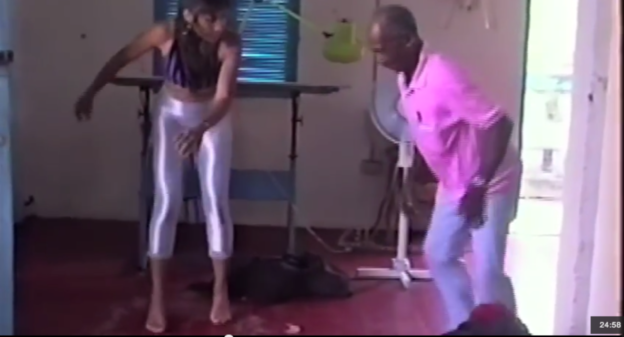
In this excerpt, Solís discusses studying the dance of the devil in 1994 under the tutelage of Celedonio Molinar, legionary Major Devil of Portobelo, Panama and receiving permission from the Congo King and Queen to dress and dance as a devil in 1995.
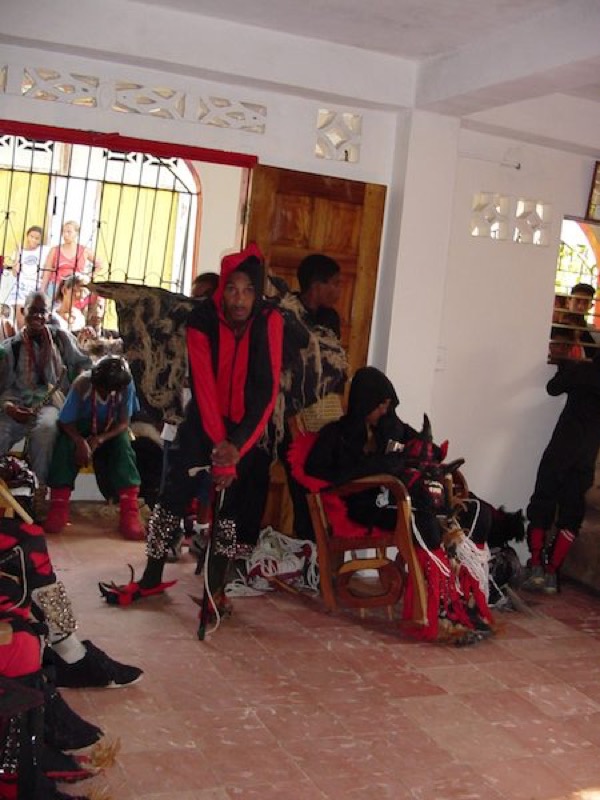
In this excerpt, Jiménez describes the “pujido”/”grunt” that the devil character uses to build internal energy and externalize it. He then discusses his interpretation of its relationship to the occult and a potential existential compromise.
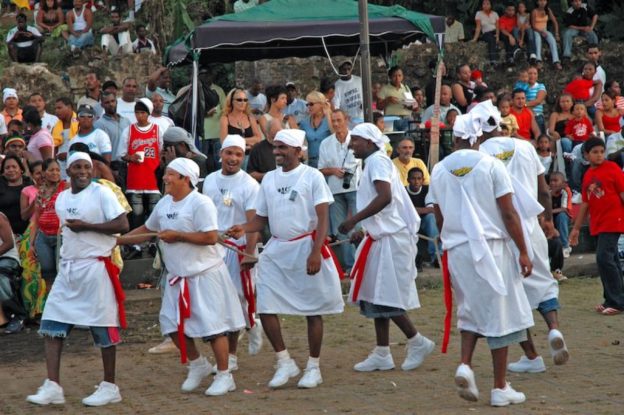
In this excerpt, Molinar shares his experience of being symbolically blessed or “baptized” as the Major Devil character. Just as the “pujido” or “grunt” helps to amplify internal energy, the process of being symbolically baptized helps to abate energy.
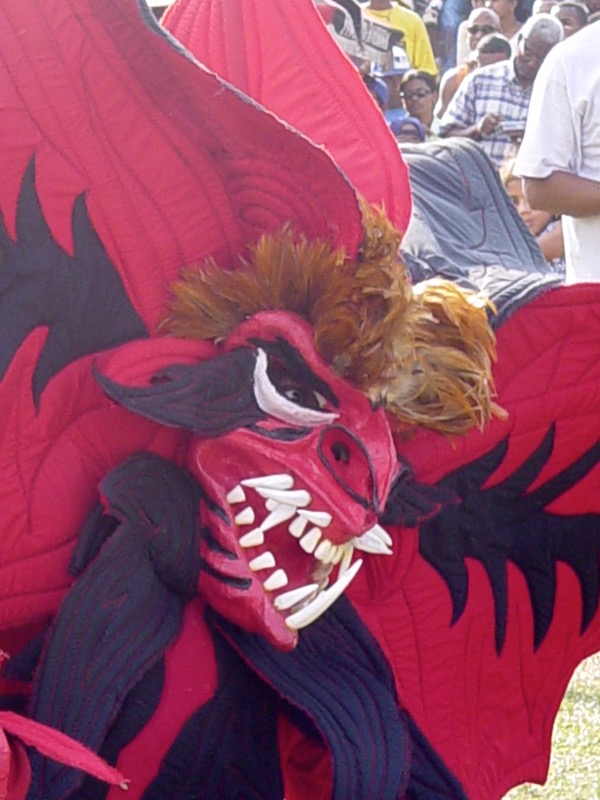
In this excerpt, Molinar discusses the practice of symbolically selling the devil at the conclusion of the Congo game and his interpretation of what the devil character represents within the Congo tradition.
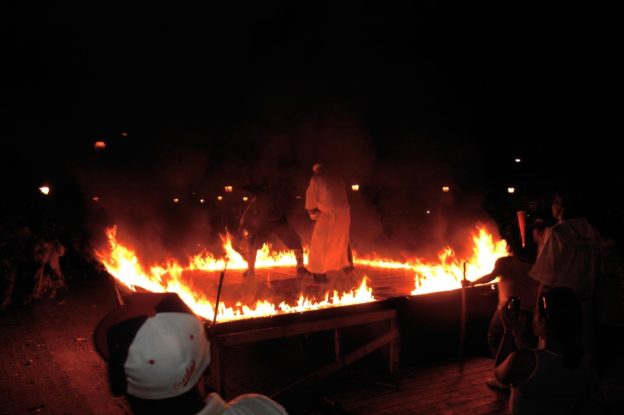
In this excerpt, Molinar discusses a few of the changes that he has witnessed in the devil character’s embodiment within the tradition that displease him and responds to Arturo Lindsay’s question regarding the escalating violence he has witnessed with the way some younger practitioners wield their whips.
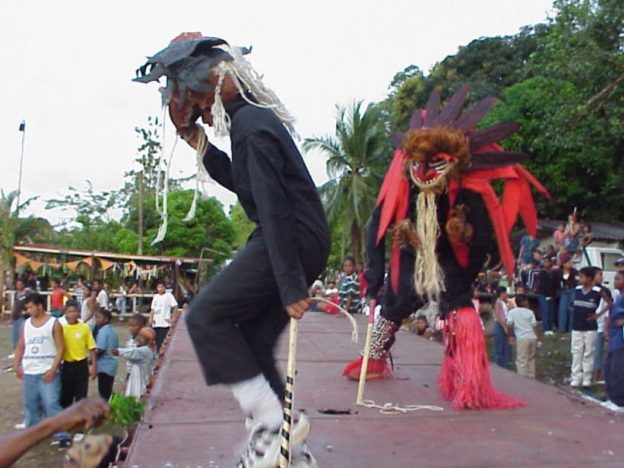
In this excerpt, Molinar discusses the current existence of three people who play the role of Major Devil in the Congo tradition even though the official narrative about the tradition only signifies one Major Devil character playing at any one time.